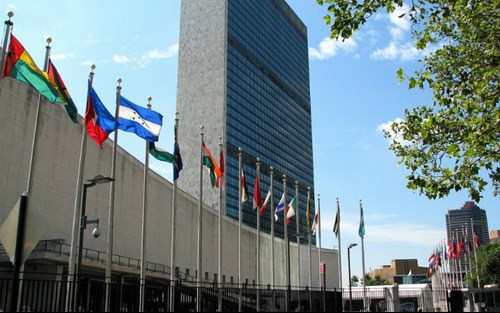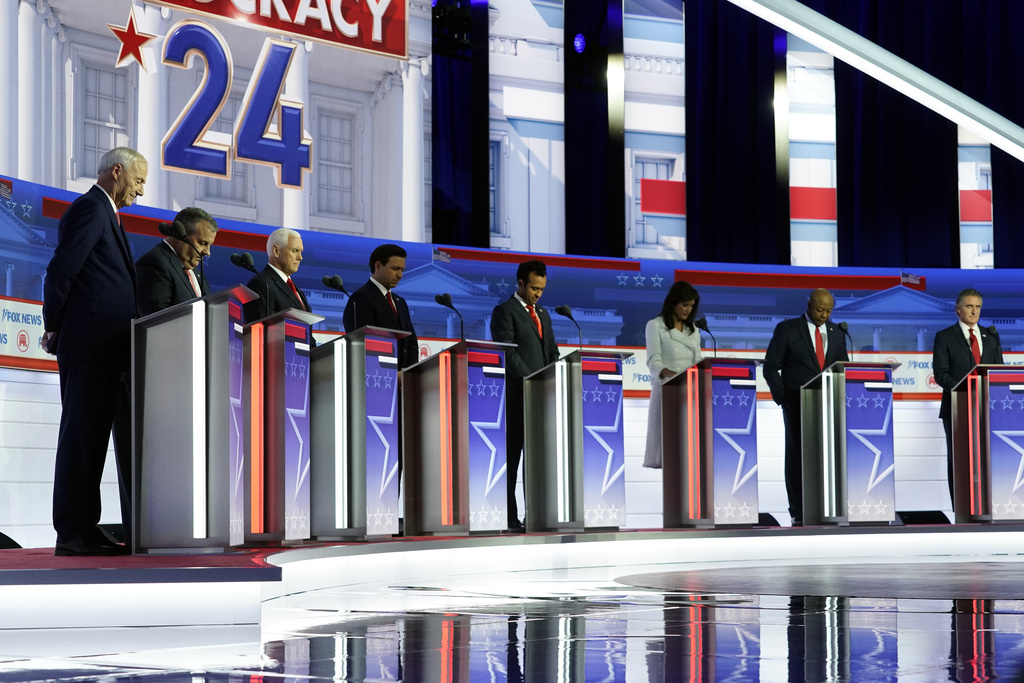Jim Roguski, a researcher at the non-profit World Council for Health, has been documenting and warning about the WHO's attempt at a worldwide power grab through most of 2023.
While last week’s declaration has no legal authority, the globalist World Health Organization is attempting to add amendments to the International Health Regulations, or IHR, which is a legally binding agreement involving 196 nations.

In an interview on the "Washington Watch" program this week, Roguski said a WHO task force is set to meet Oct. 2-6 to discuss the IHR amendments. By adopting the IHR, the United Nations would then be able to declare a pandemic emergency. That gives the UN, through the WHO, the power to enforce lockdowns, vaccine mandates, travel restrictions and more.
In May of 2022, at the WHO’s annual meeting “amendments were adopted and the deadline to reject those amendments is coming up very rapidly, December 1,” Roguski said. “People need to know this. Nobody in the media, nobody in Congress or the Senate, and quite frankly, nobody in any parliamentary body around the world, has spoken up because there are still two months left for every nation.”
In the U.S. it seems the only person sounding the alarm is Michele Bachmann, the former U.S. House member who attended the WHO meeting and has been beating the drum for months.
The important meeting is next week
When the task force meet October 2, Roguski said the attendees will define "vaccine" and what that means.
"There is not a legal definition of words like vaccine, pandemic, safe or effective. They’re going to be talking about the scope of the amendments to the regulations, things like dignity, human rights and fundamental freedoms,” Roguski said.
 Perhaps the most important item on the agenda will be what most call a “vaccine passport,” which is called a “global digital health certification network" in typical UN bureaucratic language.
Perhaps the most important item on the agenda will be what most call a “vaccine passport,” which is called a “global digital health certification network" in typical UN bureaucratic language.
Regardless of the title, whether simple or complex, many people around the world experienced that loss of freedom during the COVID-19 pandemic. After that loss of freedom resulted in public anger and pushback, many agreed elected politicians and unelected government officials should never be trusted with such authority ever again. But the WHO's future pandemic plan removes local and state officials from being held responsible for their actions ever again.
The WHO was largely criticized for its COVID-19 response in a 2021 report by an independent panel that the WHO itself authorized.
The panel found that the WHO should have declared a global response earlier than it did.
 The report also cited a “myriad of failures, gaps and delays in preparedness and response.”
The report also cited a “myriad of failures, gaps and delays in preparedness and response.”
Now the WHO says it’s trying to improve its preparedness for future pandemics, but critics say its methods have the look of a massive invasion of privacy.
The United States was not among 11 nations who voted against the declaration. The dissenters were Russia, Belarus, Bolivia, Cuba, North Korea, Eritrea, Iran, Nicaragua, Syria, Venezuela and Zimbabwe.
"I am praying on a regular basis - I mean this sincerely - that national leaders around the world come to their senses and do what's needed," Roguski said. "Just simply write a letter to the WHO rejecting the amendments that were adopted last year."
'Historic week for health'
WHO leadership, meanwhile, is spinning the declaration as something official.
“Last week was a historic week for health, with three high level meetings on health issues at the U. N. General Assembly in New York. Member states approved strong political declarations on pandemic prevention, preparedness and response, (plus) universal health coverage and tuberculosis,” WHO Director General Tedros Ghebreyesus said in a press conference.
“It’s propaganda,” Roguski countered. “What was said was that this is subject to being presented at some future date before the actual United Nations General Assembly. That is misinformation because they don't let people know this is coming. Those 11 nations saw it coming and called it out in advance.”
Roguski said the 11 nations “put a wrench in the propaganda machine. They were exposed for the shenanigans they were attempting.”







